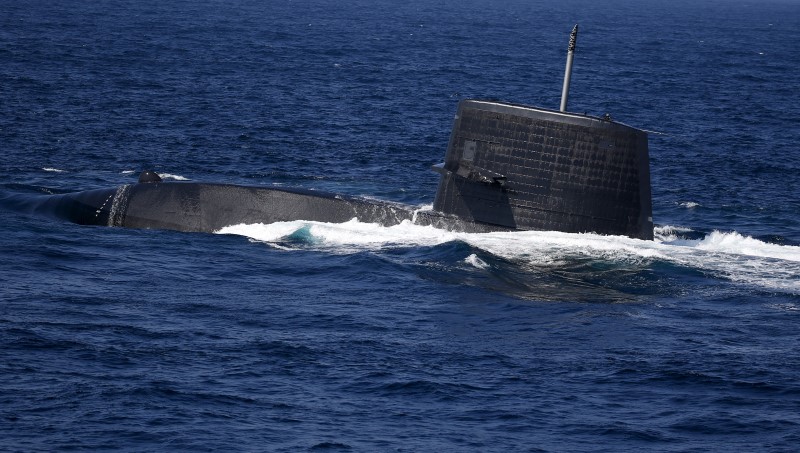TOKYO (Reuters) - A Japanese submarine will visit the Philippines for the first time in 15 years, along with two warships that will then sail on to Vietnam, in a show of support for nations opposed to Beijing's ambitions in the South China Sea, a person familiar with the matter said.
The Japanese submarine, which is used for training, and the destroyers will arrive in the Philippines in April. The escort vessels will later sail to Vietnam's strategic Cam Ranh Bay base on the South China Sea, the source said.
"It sends a message. It is important for Japan to show its presence," the person with knowledge of the plan said on Monday. He asked not to be identified because he was not authorized to talk to the media.
A Japanese Ministry of Defence spokesman declined to comment on any submarine visit but said the navy normally conducted training voyages in March and April.
"But we are still in the planning stage so are unable to provide details," he said.
The visits were first reported by Japanese media, including the Sankei newspaper, on Sunday.
Asked about the visits, Chinese Foreign Ministry spokesman Hong Lei said Japan occupied the Spratly Islands in the South China Sea during World War Two so China was on "high alert" for Japan's military moves there.
"The cooperation of relevant countries should benefit regional stability and should not be directed at third parties or harm another country's sovereignty or security interests," he told a daily news briefing in Beijing.
Of the countries bordering the South China Sea, the Philippines and Vietnam are most opposed to China expanding its influence in the region by building bases on reclaimed islands.
The Philippine military had not received any official notification of a visit by a Japanese submarine, a military spokesman said, though a visit to the Subic Bay naval base was expected.
"Informally, we know a Japanese submarine is visiting Subic in April," said the Philippine spokesman, Brigadier-General Restituto Padilla.
JAPANESE MINISTER TO VISIT
Rich in natural resources, the South China Sea is also a major thoroughfare for global trade worth up to $5 billion a year, much of it coming to and from Japanese ports.
The United States, which has asked China to halt reclamation work that could destabilise the region, has irritated China by conducting naval patrols close to the man-made outcrops in what are known as freedom-of-navigation operations.
Rather than confronting China in such a direct way, Japan instead wants to build the capacity of nations in the region to improve their surveillance of Chinese forces. Japan's Minister of Defence Gen Nakatani is due to travel to the Philippines in April to discuss cooperation.
Japan has already offered to supply the Philippines with aircraft that will help bolster patrols over the disputed sea. Japan wants to give the Philippines a handful of Beechcraft TC-90 King Air training planes that could be fitted with basic surface and air surveillance radar.
The Philippines has also asked the United States to hold joint naval patrols.
Japan and Vietnam agreed in November to hold their first joint naval exercise.

The United States has no South China Sea claim and says it takes no sides, though it has been highly critical of China's assertiveness and says it will protect freedom of navigation.